Com Events
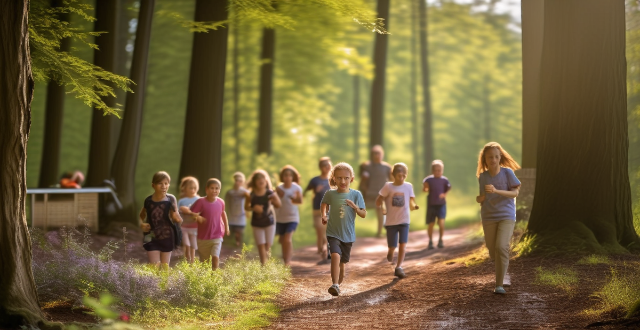
How can communities prepare for and respond to flooding events ?
Flooding is a natural disaster that can cause significant damage to properties, infrastructure, and human lives. It is crucial for communities to be prepared and respond appropriately to minimize the adverse effects of flooding events. In this article, we will discuss some strategies that communities can adopt to prepare for and respond to flooding events, including risk assessment and planning, early warning systems, infrastructure improvements, community awareness and education, evacuation and shelter, rescue and recovery operations, cleanup and rehabilitation, and long-term mitigation measures. By adopting these strategies, communities can minimize the impact of flooding events on their residents and ensure a quick recovery after the disaster has passed.

How might extreme weather events due to climate change impact children's access to safe housing and shelter ?
This article discusses the impact of extreme weather events on children's access to safe housing and shelter. It highlights how these events can cause destruction of homes and communities, displacement and homelessness, health risks, psychological trauma, and disruptions in education. The article emphasizes the need for concerted efforts from governments, communities, and individuals to address these challenges and build more resilient infrastructure.
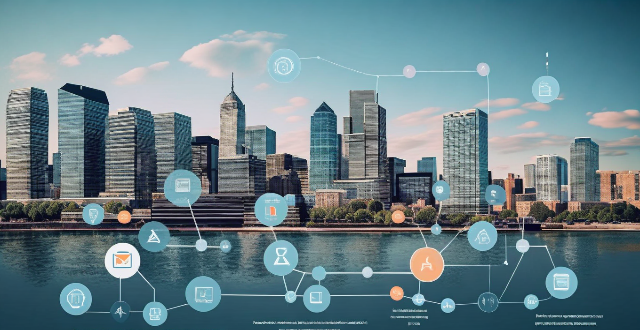
How can networking events help me enhance my personal image ?
Attending networking events can significantly enhance your personal image by establishing industry presence, expanding professional circles, offering learning opportunities, showcasing expertise, and building a positive reputation. To make the most out of these events, dress appropriately, be prepared with an elevator pitch, practice active listening, follow up with connections, and contribute value whenever possible. These strategies not only improve your professional image but also open doors to new opportunities and collaborations.

What are some examples of recent extreme weather events ?
This article discusses recent examples of extreme weather events that have caused significant damage to human life, property, and the environment. These include Hurricane Ida (2021), Australian Bushfires (2019-2020), California Wildfires (2020), European Heatwave (2019), Japanese Typhoon Hagibis (2019), and Indian Cyclone Amphan (2020). The article concludes by emphasizing the need for individuals, communities, and governments to take action to mitigate the effects of these events and adapt to changing weather patterns.

How can extreme weather events caused by climate change affect the scheduling of sporting events ?
The text discusses the impact of extreme weather events caused by climate change on the scheduling of sporting events. It highlights how these events can lead to cancellations or postponements, changes in venue conditions, travel disruptions, and reduced fan attendance. The text emphasizes the need for sports organizations and venues to develop strategies for dealing with these challenges to ensure the safety and enjoyment of all those involved in sporting events.

What are the benefits and drawbacks of virtual fan support events compared to in-person events ?
Virtual fan support events provide global accessibility, cost-Virtual fan support events provide global accessibility, cost- benefits but face challenges like limited cost-effectiveness, and safety benefits but face challenges like limited personal interaction and technical issues. Finding a balance between virtual and in-person events is crucial for meaningful connections.
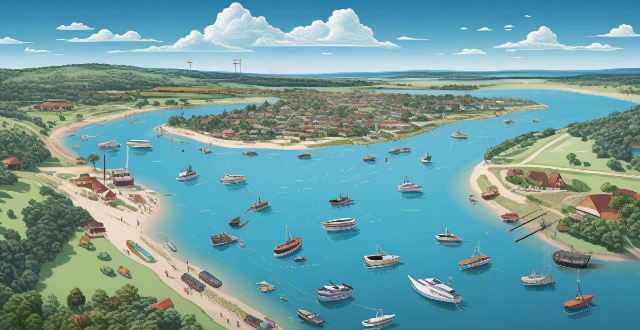
How do extreme weather events influence biodiversity and ecosystems ?
Extreme weather events, such as flooding, drought, and heatwaves, significantly impact biodiversity and ecosystems. These events can cause habitat loss, species adaptation, and altered ecosystem structure and functioning. It is crucial to understand these impacts and take action to mitigate them through conservation efforts and climate change adaptation strategies. By doing so, we can help protect our planet's diverse flora and fauna and ensure the continued health of our ecosystems for future generations.
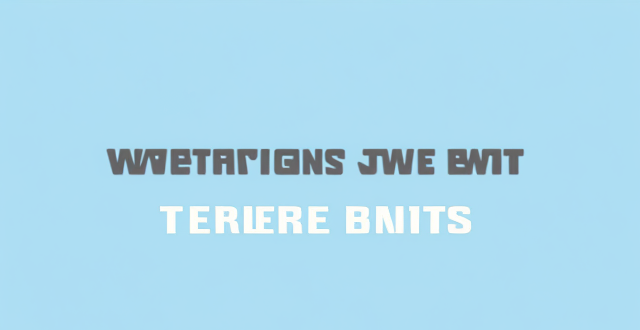
What impact do extreme weather events have on consumer purchasing habits ?
Extreme weather events, such as hurricanes, floods, and heatwaves, significantly impact consumer purchasing habits. These changes in buying behavior are often driven by necessity, fear, and the desire to be prepared for future events. The text discusses the various ways extreme weather events can influence what and how consumers purchase. It also highlights the need for businesses and retailers to adapt to meet the changing demands and priorities of their customer base.
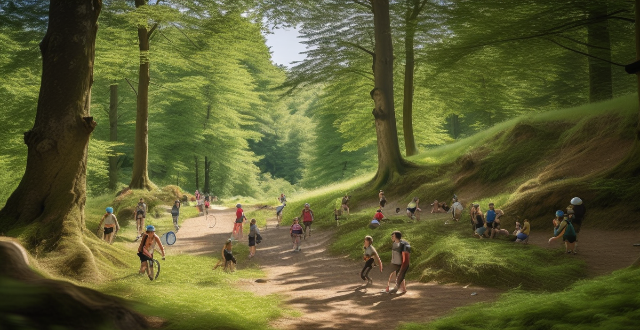
Can sports events promote peace between nations ?
Sports events can promote peace between nations by breaking down barriers, fostering cultural exchange, and providing a platform for diplomatic engagement. Historical and modern-day examples show the potential of sports diplomacy, but challenges such as political interference and commercialization must be considered. Overall, sports have the power to bring people together and promote understanding, making them a valuable tool for promoting peace.
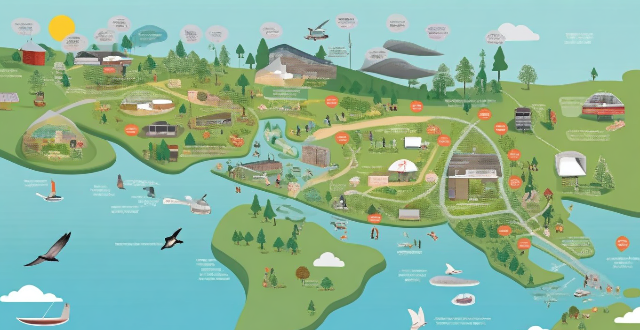
How do extreme weather events affect global climate change ?
Extreme weather events, such as hurricanes, floods, droughts, and heatwaves, have a significant impact on global climate change. They can exacerbate existing climate conditions and contribute to the overall warming of the planet by increasing greenhouse gas emissions, affecting ecosystems and biodiversity, disrupting agriculture and food production, and impacting human health and well-being. It is essential that we work together to mitigate the effects of extreme weather events and address the root causes of climate change to ensure a sustainable future for all.
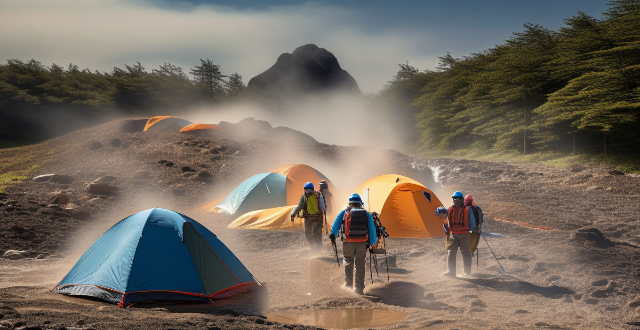
How can we predict and prepare for extreme weather events ?
Predicting and preparing for extreme weather events is a critical aspect of modern society. With advancements in technology and scientific research, we now have the ability to forecast these events with greater accuracy than ever before. However, predicting and preparing for extreme weather events requires a multi-faceted approach that involves both scientific knowledge and practical preparation. In this article, we will explore some of the key ways in which we can predict and prepare for extreme weather events.

How do fan support events differ between music genres or cultures ?
The text discusses the variations in fan support events across different music genres and cultures. It highlights how these events differ in terms of concert tours, meet and greets, signings, fan clubs, and online communities. The examples provided illustrate the unique traditions and practices associated with each genre or culture, showing how artists connect with their audiences in diverse ways.

How do fan support events impact an artist's success and popularity ?
Fan support events play a crucial role in shaping an artist's success and popularity by increasing visibility, strengthening fan loyalty, providing monetization opportunities, and enhancing reputation and credibility. These events offer platforms for fans to connect with artists, generate media coverage, create social media buzz, foster personal connections, offer exclusive experiences, sell merchandise, increase ticket sales, gain industry recognition, and influence critic opinions. Overall, fan support events are essential components of an artist's career development strategy.

What are the main causes of extreme weather events ?
Extreme weather events, such as hurricanes, tornadoes, floods, and droughts, are caused by a combination of natural climate variability, human activities, and changes in the Earth's climate system. Natural climate variability includes phenomena like El Niño and La Niña, which can cause extreme weather conditions around the world. Human activities, such as greenhouse gas emissions, land use changes, and pollution, also play a significant role in causing extreme weather events. Changes in the Earth's climate system, such as sea level rise, ocean acidification, and changes in atmospheric circulation patterns, can also contribute to extreme weather events. Addressing both the underlying causes and implementing adaptation strategies is important to mitigate the impacts of these events.

How do extreme weather events relate to climate change ?
Extreme weather events, such as hurricanes, heatwaves, floods, and droughts, have become more frequent and intense in recent years due to climate change caused by human activities. Climate change leads to increased temperatures, changes in precipitation patterns, stronger storms, and impacts on ecosystems. Examples of extreme weather events linked to climate change include Hurricane Sandy, Australian Bushfires, European Heatwaves, and the Indian Ocean Dipole. It is crucial to take action to mitigate the effects of climate change and adapt to the changing climate.

How do sports events promote social interaction and community building ?
Sports events play a significant role in promoting social interaction and community building. They bring people together, foster a sense of belonging, and create opportunities for individuals to connect with one another. This is achieved through encouraging participation, building community spirit, providing entertainment and recreation, facilitating networking opportunities, and enhancing diversity and inclusion. By bringing people together around a shared passion for sports, these events create lasting connections and positive experiences that extend far beyond the playing field.

What are some examples of successful sports charity events ?
Successful sports charity events like the Nike Foundation's "Girl Effect" Marathon, The Komen Race for the Cure, and The Wounded Warrior Project's Carry Forward 5K have raised millions of dollars for various causes by combining the excitement of sports with philanthropy. These events engage participants in physical activity, raise funds and awareness for important causes, and create a sense of community among participants and supporters.
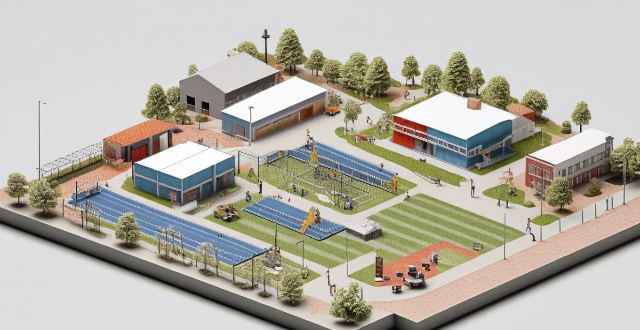
How do sports events promote interfaith understanding and cooperation ?
Sporting events serve as a platform for promoting interfaith understanding and cooperation by breaking down barriers, encouraging dialogue, building partnerships, and promoting peace. Through shared passion for sports, principles of sportsmanship, mixed teams, celebration of diversity, joint community projects, interfaith leagues, peace through play initiatives, and role models, sports events can contribute to a more harmonious society where interfaith cooperation is the norm.

How do major sporting events, like the Olympics, affect fashion trends ?
Major sporting events have a significant impact on fashion trends, including the attire of athletes, national dresses, opening ceremonies, merchandise and souvenirs, and marketing campaigns. Designers take inspiration from these events to create clothing that is both fashionable and practical, leading to the emergence of sportswear as a fashion trend. Major sporting events also showcase traditional garments and cultural heritage, increasing interest in ethnic and traditional clothing among consumers. Additionally, elaborate costumes and performances during opening ceremonies inspire high-end fashion collections. Merchandise and souvenirs generated by major sporting events have a significant impact on streetwear fashion trends, while marketing campaigns promote products inspired by the event's theme or imagery. Overall, major sporting events continue to shape our understanding of what is fashionable and desirable in today's society.
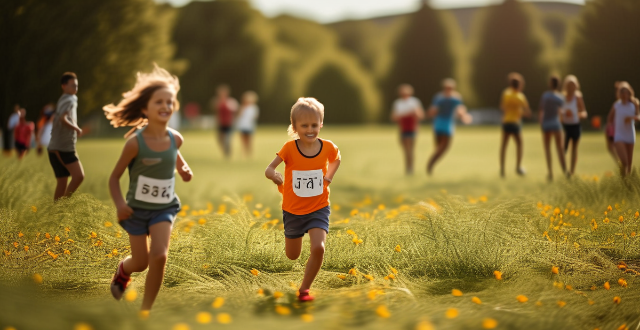
How do major sporting events like the Olympics impact international relations ?
Major sporting events, such as the Olympics, have a significant impact on international relations. These events promote diplomatic ties between nations, enhance cultural exchange, provide economic benefits, showcase national pride, and encourage peace and unity among countries. By bringing together athletes from different countries, cultures, and backgrounds, these events create a platform for dialogue and understanding, fostering stronger relationships and promoting a more harmonious world.

How can we celebrate cultural diversity through festivals and events ?
Celebrating cultural diversity is a beautiful way to foster understanding, respect, and appreciation for different cultures. Festivals and events are perfect platforms for this celebration as they bring people together in a festive atmosphere that encourages sharing and learning about diverse traditions. Here's how we can celebrate cultural diversity through festivals and events: Inclusivity in Planning and Participation: To ensure that cultural diversity is celebrated genuinely, it's essential to involve members from various cultural backgrounds in the planning and execution of festivals and events. This approach ensures that traditions are represented authentically and respectfully. Showcasing Cultural Arts and Performances: Artistic expressions like music, dance, theater, and visual arts are integral to many cultures. Featuring these during festivals allows attendees to experience the depth and beauty of different cultural art forms. Food Festivals and Culinary Experiences: Food is a universal language that transcends borders. Organizing food festivals or culinary workshops that highlight dishes from various cultures can be a delightful way to celebrate diversity. Educational Workshops and Discussion Panels: Providing opportunities for learning and dialogue enhances the understanding of different cultures. Workshops and panel discussions can cover topics like history, traditions, and contemporary issues affecting various cultural groups. Community Interaction and Networking: Festivals and events should encourage interaction among participants to build connections and foster a sense of community. These interactions can lead to lasting friendships and mutual respect among diverse groups. Respectful Representation: When celebrating cultural diversity, it's crucial to ensure that representations are respectful and avoid stereotyping or caricatures. Research and collaborate with cultural representatives to ensure accuracy and sensitivity in all aspects of the event.
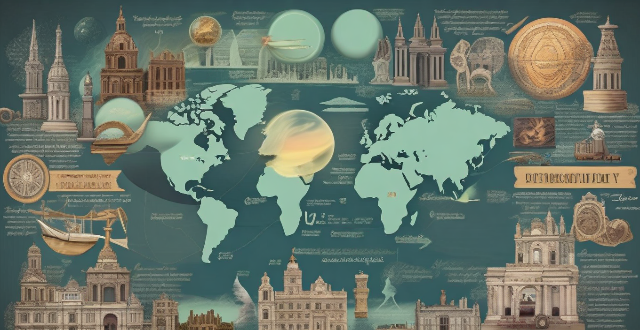
How can I apply what I've learned in history to real-world situations and current events ?
The text discusses the importance of applying historical knowledge to real-world situations and current events. It provides ten ways to apply historical knowledge, including contextualizing current events, analyzing causation, predicting outcomes, informing decision making, promoting critical thinking, enhancing cultural understanding, improving communication skills, developing empathy, informing policy and advocacy, and inspiring creativity and innovation. The conclusion emphasizes that connecting the dots between past and present can help make more informed decisions and work towards a better future.
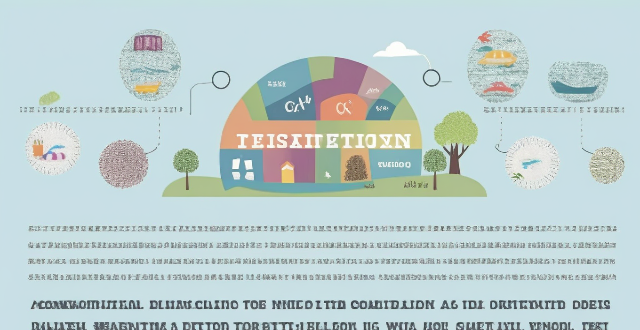
What is the relationship between climate change and extreme weather events ?
The text discusses the correlation between climate change and extreme weather events. It outlines how climate change, caused by human activities such as burning fossil fuels and deforestation, leads to an overall rise in global temperatures, affecting precipitation patterns and increasing storm intensity. This results in more frequent and severe heatwaves, changes in rainfall leading to floods or droughts, and more intense storms including hurricanes, cyclones, and typhoons. The essay concludes that there is a clear relationship between climate change and extreme weather events, and emphasizes the urgency of taking action to mitigate climate change and adapt to its impacts.
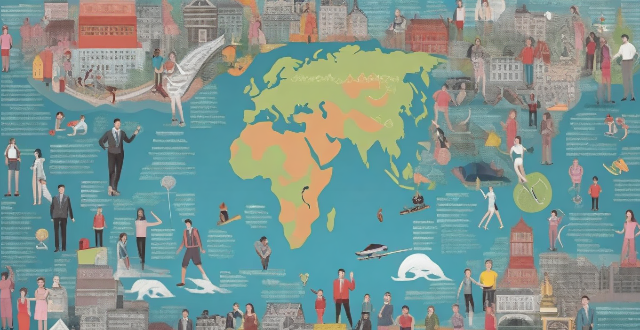
How has the integration of sports and multiculturalism influenced global athletic events ?
The article discusses how sports and multiculturalism have influenced global athletic events, making them more diverse, inclusive, and engaging. It highlights the increased diversity and inclusivity, cultural exchange and celebration, promotion of gender equality, addressing social issues, and economic benefits for host countries. The article concludes by stating that these events continue to evolve and adapt to an increasingly interconnected world.

How does climate change influence weather patterns and extreme weather events ?
Climate change significantly affects weather patterns and increases the frequency and intensity of extreme weather events. It influences global wind patterns, changes in ocean currents, and variations in seasonal patterns. Moreover, it leads to more frequent and intense heatwaves, severe storms and hurricanes, extreme precipitation events, and droughts. These impacts highlight the urgent need for action to mitigate climate change and adapt to its effects.

What are the impacts of extreme weather events on building designs ?
Extreme weather events significantly impact building designs, affecting structural integrity, energy efficiency, and sustainability. To withstand high winds, heavy rains, and seismic activity, buildings must be designed with increased resilience using advanced materials and construction techniques that enhance their structural integrity. Improved foundations are also necessary to support the weight of buildings and resist forces exerted by extreme weather conditions. Energy efficiency is another area impacted by extreme weather events. Buildings must be designed to minimize heat loss or gain during extreme temperatures, requiring enhanced insulation and proper sealing of windows and doors. Incorporating renewable energy sources such as solar panels and wind turbines can reduce reliance on non-renewable energy sources and make buildings more sustainable. Sustainability is also a crucial factor in building designs affected by extreme weather events. Green roofs and walls help reduce the urban heat island effect, improve air quality, provide insulation, and absorb rainfall. Water management systems, including rainwater harvesting and permeable surfaces, are essential for coping with floods and droughts. Overall, architects and engineers must consider factors such as structural integrity, energy efficiency, and sustainability when designing buildings to ensure they can withstand extreme weather conditions while minimizing their environmental impact. By incorporating advanced materials, construction techniques, renewable energy sources, green roofs and walls, and effective water management systems, we can create buildings that are both resilient and sustainable.

How do extreme weather events caused by climate change affect employment rates ?
This article explores the impact of extreme weather events caused by climate change on employment rates in various sectors, including agriculture, construction, and tourism. It highlights the vulnerability of these sectors to extreme weather events such as droughts, floods, heatwaves, hurricanes, tornadoes, wildfires, storms, rising sea levels, and reduced snowfall. The article also discusses potential mitigation strategies that can help reduce the impact of these events on employment rates in the affected sectors.

How can governments use sports events to promote public health awareness ?
Governments can use sports events to promote public health awareness by partnering with health organizations, integrating health messages into event branding, encouraging healthy lifestyle habits among participants, hosting health-related activities, and leveraging social media. These strategies help engage people in discussions about their well-being and foster a culture of wellness.

How can sports events be used to raise funds for charity ?
**Raising Funds for Charity through Sports Events: A Guide to Integrating Fundraising into Sports Events** **Introduction: The Power of Sports in Fundraising** - Sports events are a powerful tool for raising funds and awareness for charitable causes. **Strategies for Integrating Fundraising into Sports Events** 1. **Ticket Sales and Donations:** Charge admission fees and place donation boxes at event entrances and exits. 2. **Corporate Sponsorships:** Partner with local businesses and create sponsor challenges within the event. 3. **Merchandise Sales:** Sell branded merchandise and auction off unique items during the event. 4. **Peer-to-Peer Fundraising:** Encourage participants to raise money through their personal networks and leverage online platforms. **Implementation Steps for Successful Fundraising** 1. **Clear Objectives and Communication:** Set clear goals and keep donors informed about how their contributions will be used. 2. **Event Promotion and Marketing:** Utilize social media, engage with local media outlets, and promote the event and its charitable cause. 3. **Streamlined Operations:** Simplify the registration process and ensure transparent financial management. **Conclusion: The Lasting Impact of Sports Fundraising** - Use the event as a springboard for ongoing fundraising efforts and share stories of how the funds raised have made a difference.